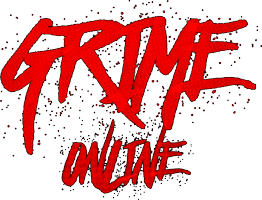Reset on:
LIKE grime music itself, Lady Shocker was born and bred in Bow.
Writing her first lyrics as a schoolgirl and hanging out with renowned Grime MCs like Wiley and God’s Gift, “Shocks” went on to form Female Allstars (FA), grime’s first all-woman “crew.”
Grime was no record company invention, but a real working-class movement “from the streets,” as Shocks puts it.
There’s a fine tradition of working-class rebellion in Bow, of course — in 1888 striking Bryant & May matchwomen paraded its streets, belting out songs about their lousy employer (one notable example: ‘We’re going to hang old Bryant on a sour apple tree’ to the tune of John Brown’s Body).
The matchwomen often had run-ins with the law; a century later grime artists were also targeted: not just pirate stations and raves, but even major official gigs were shut down via notorious risk assessment form 696.
One of the questions venues had to answer (or face a hefty fine or prison): “Is there a particular ethnic group attending?”
Grime artists, always political in a way the middle-class left can overlook, wrote about the relentless, enervating harassment: “Feds pull me like I’m a drug baron, chatting bare shit, can’t understand ’em” (Jme, ‘96 Fuckries’).
What the early moral panic over grime missed was the positivity— people given few opportunities making their own.
Shocks says: “It gave an outlet to people who wouldn’t normally have one, wouldn’t have a way into music … and gave them a chance to talk about their experiences. We needed something of our own.”
She was there at the start: early grime MC God’s Gift (Jerome Dow), who’d been in garage collective Pay as U Go with Wiley, was often round hers.
LR: It sounds like there wasn’t much separation between your life and art — Gift round at yours “spitting lyrics” with your brother! Do you remember the day you started performing yourself?
LS: It’s crazy, because I can’t actually remember a specific day. I always walked around singing my brother’s lyrics, singing Gift’s lyrics — and then from nowhere, just started making my own. It was always in me: I wrote one lyric, it led to two, three — I reckon now I’ve probably written 10,000!
LR: What was different about grime?
LS: It’s a number of things — obviously the tempo; but the energy’s just different. If you go to a hip-hop rave you’ll get one or two tunes that make you jump up [and dance] but with grime, the energy and the passion that the MC gives to the crowd and the crowd gives right back — it’s electrifying. Everyone’s jumping about, mosh-pitting — there’s nothing like it.
LR: Why do you think grime started in Bow?
LS: It just happened to be where a lot of creative people were, and just evolved. Straight away I got involved, I joined [otherwise all-male] Wolfpack crew.
I can’t explain in words the energy then! We performed everywhere — all the youth clubs had decks, they started doing under-18 raves, giving people chances to perform.
We had to pay £5 subs to do [pirate] radio but everyone paid because of the love of it.
Satellite TV station Channel U was also vital to the scene, and Shocks quickly became a regular.
She was, and is, a mistress of “clashing,” when artists go head to head, verbally jousting with each other.
There are roots in Jamaican dancehall, where clashes between sound systems date back at least 70 years, and US hip-hop’s later battle rapping — which drew in turn from “the dozens,” an African-American tradition of name-calling banter.
Clashing is exposing and potentially humiliating, with nothing but wit and verbal dexterity to rely on.
LR: Did Shocks, recognised as a top-tier clasher, ever find it daunting, particularly as a woman?
LS: I was used to it, because I came up through the youth clubs and it’s what we did all the time.
I’d go to four clubs a week and get into clashes — it’s always been fun for me.
So when they started developing clashing platforms, I was automatically comfortable — some women wouldn’t be used to that constant back and forth.
Even now, when she doesn’t need clashing to make her name, Shocks comes back to it:
No matter what , every couple of years I’ll come back and clash. It re-energises me, it’s my fun.
It keeps you on your toes; and if you get writer’s block it’s easier to shake if you have to write for a clash, because it gives you direction.
Sometimes because I‘ve written so many songs I might think: “Have I said all I have to say?” Then a clash will then refresh my brain.
LR: How long would you spend writing for a clash?
LS: It depends if I think it’s a challenge. If somebody really good — if I don’t come fully prepared I‘ll lose — I might spend two weeks.
She has her first “two-on-two” clash (two rival duos) in a few weeks, and is excited rather than nervous.
LR: You’ve said you didn’t mind being the only woman on a bill, because it’s what you’re used to, and that men on the scene generally look out for the women — but you still saw the need for, and formed, all-female crew FA. How did it happen?
LS: We’d been working with each other through the Girls of Grime project and we’d do radio sets together.
For ages we said, We should do a song…
FA’s 2019 track The Switch Up featured an incredible 13 women MCs, with Nehanda summing up the need for it: “Too many many men, so I pushed them aside and picked up the pen…”
A core FA crew of Shocks, Miz, Hyny and Frankie Stay Woke kept working together:
LS: It just got bigger and bigger — we played the Fuck Boris campaign, then we played Prague. Most of the audience weren’t English speakers but could recite all our lyrics: it blew us away!
Next FA decided they needed track with a big-name MC, and contacted Jme (Jamie Adenuga co-founder of crew and record label Boy Better Know).
LS: We had nothing but love and support from him. FA and Jme’s brilliant 2021 EP What you call Disss continues to make an impact.
But things haven’t always been easy for Shocks as a lesbian on the scene.
Her early videos drew homophobic comments:
They’d say you look like a boy, get back to the kitchen — I even had threats over it.
It happened a couple of times in real life too. At her lowest ebb Shocks even considered giving up, but friends talked her out of it, and she came blazing back with 2016’s I Am What I Am.
I decided to put it in a song — that’s how I express myself, not just the highs but the lows as well.
After that things started easing up — I found myself, I stopped comment watching, it was just “Here I am, whether you like it or not!”
LR: Do you ever stop and think how groundbreaking your career’s been?
People do big us up for FA. But I want to do more. I want to set up a female studio. All the Female Allstars have skills — Frankie does art work, Miz is a presenter, Ny is a model and dancer, I’m a photographer, editor and music engineer. But obviously, it’s going to cost a lot of money…
But we’d love to set up a studio that would be a safe space, you haven’t got to worry about sexual advances, girls can come and learn from women who have been on the scene.
This would be an incredible thing for the young women of Bow — and London in general — and with the unstoppable Lady Shocker and her crew behind it, it just might happen.
The Female Allstars new album FA to the World is out soon. Lady Shocker will play Matchwomen’s Festival on Saturday July 9 2022 in Bow, London. Tickets available from Eventbrite.
You can’t buy a revolution, but you can help the only daily paper in Britain that’s fighting for one by joining the 501 club.
Just £5 a month gives you the opportunity to win one of 17 prizes, from £25 to the £501 jackpot.
By becoming a 501 Club member you are helping the Morning Star cover its printing, distribution and staff costs — help keep our paper thriving by joining!
You can’t buy a revolution, but you can help the only daily paper in Britain that’s fighting for one by become a member of the People’s Printing Press Society.
The Morning Star is a readers’ co-operative, which means you can become an owner of the paper too by buying shares in the society.
Shares are £10 each — though unlike capitalist firms, each shareholder has an equal say. Money from shares contributes directly to keep our paper thriving.
Some union branches have taken out shares of over £500 and individuals over £100.
You can’t buy a revolution, but you can help the only daily paper in Britain that’s fighting for one by donating to the Fighting Fund.
The Morning Star is unique, as a lone socialist voice in a sea of corporate media. We offer a platform for those who would otherwise never be listened to, coverage of stories that would otherwise be buried.
The rich don’t like us, and they don’t advertise with us, so we rely on you, our readers and friends. With a regular donation to our monthly Fighting Fund, we can continue to thumb our noses at the fat cats and tell truth to power.
Donate today and make a regular contribution.
RAMPANT inflation risks wiping out billions of pounds pledged for public services, experts warned today.
We’re a reader-owned co-operative, which means you can become part of the paper too by buying shares in the People’s Press Printing Society.


